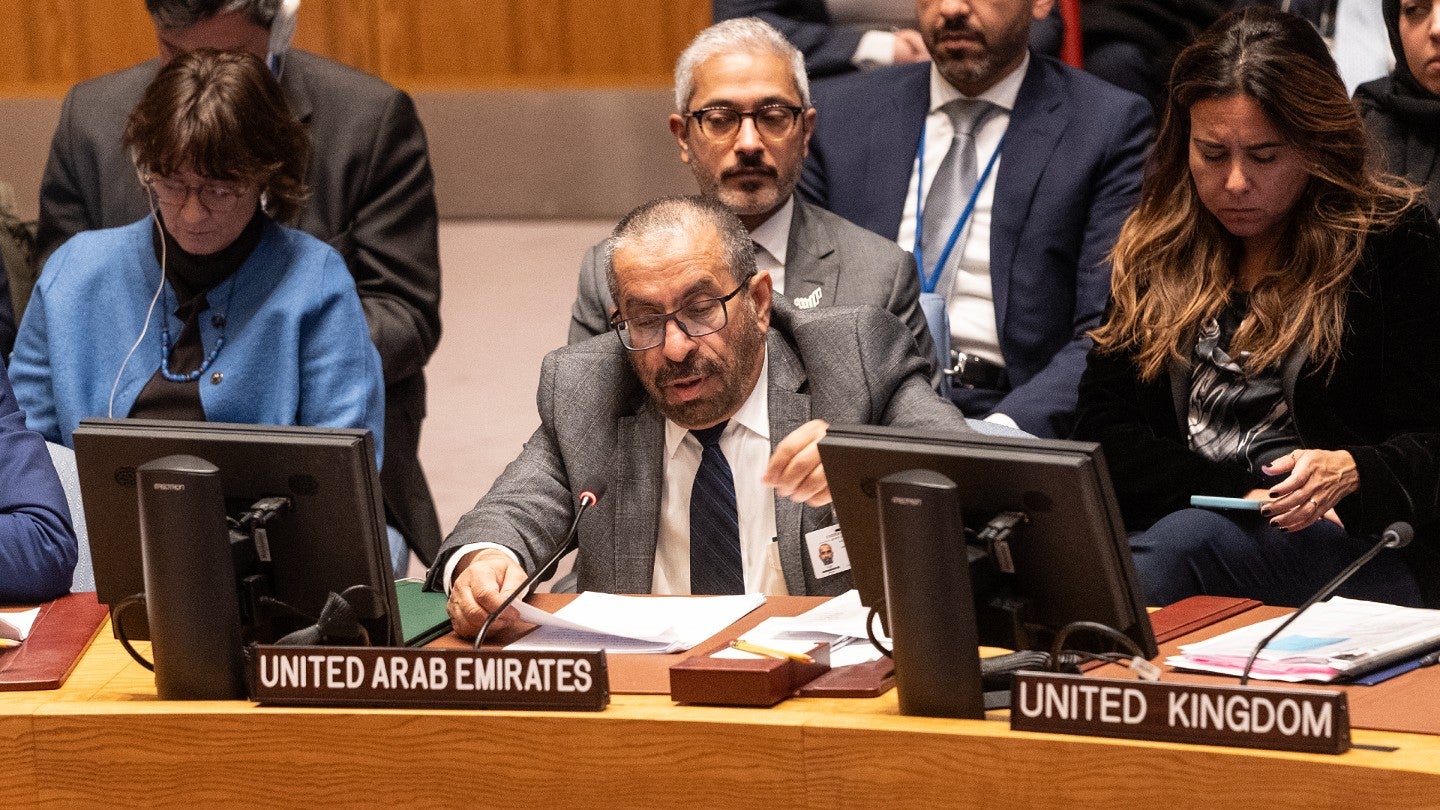
The United Nations (UN) Security Council yesterday (20 December) postponed voting on a resolution for a temporary ceasefire in Gaza for the second time in a row at the request of the US.
Diplomats in New York have been negotiating the resolution’s wording for days.
The current text, drafted by the United Arab Emirates (UAE) calls on Israel to “allow, facilitate and enable the immediate, safe and unhindered delivery of humanitarian assistance” at scale to the Palestinian population of Gaza.
It also demands that Israel and Hamas agree to an “urgent suspension of hostilities”.
Members of the Security Council are scheduled to vote on the draft resolution later today (21 December).
Will the US veto the resolution again?
On 8 December, some 13 of 15 UN Security Council members voted in favour of an immediate ceasefire in Gaza – but the resolution was vetoed by the US, while the UK abstained.
Eyebrows have been raised over the US’ veto power within the UN Security Council, which it has used at least 34 times to block resolutions that were critical of long-time ally Israel, Al Jazeera reported.
When asked if the US would again veto the resolution, Secretary of State Antony Blinken said Washington was working to ensure aid was getting into Gaza would not be complicated by events at the Security Council in New York.
A second temporary truce?
Some have interpreted the arrival of Qatar-based Hamas political leader Ismail Haniyeh for talks in Cairo yesterday as a positive sign of a possible truce.
The last time Haniyeh came to the negotiating table proceeded the first deal in November which involved the release of 110 hostages.
Israel vehemently opposes a permanent ceasefire. Prime Minister Benjamin Netanyahu has said Israel’s offensive in Gaza will not end until Hamas is dismantled.
A previous week-long ceasefire was left in tatters after violent killings in Jerusalem and Jenin.
Earlier today (21 December), the World Health Organization (WHO) said northern Gaza no longer has a functional hospital.
This was due to a “lack of fuel, staff and supplies”, according to WHO Director General Dr Tedros Adhanom Ghebreyesus.
Our signals coverage is powered by GlobalData’s Thematic Engine, which tags millions of data items across six alternative datasets — patents, jobs, deals, company filings, social media mentions and news — to themes, sectors and companies. These signals enhance our predictive capabilities, helping us to identify the most disruptive threats across each of the sectors we cover and the companies best placed to succeed.






